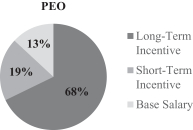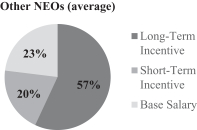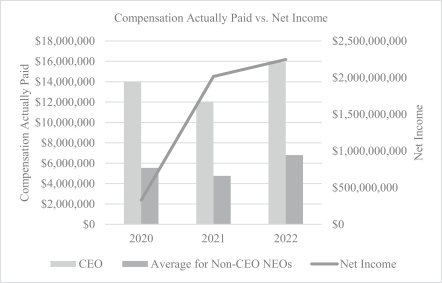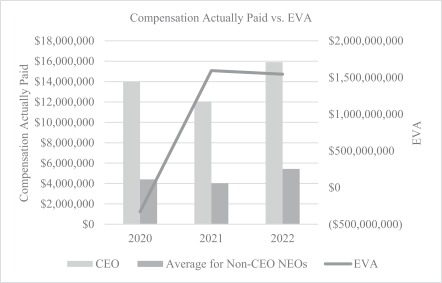WESTLAKE CORPORATION
2801 Post Oak Blvd.
Houston, Texas 77056
NOTICE OF ANNUAL MEETING OF STOCKHOLDERS
To Be Held on May 11, 2023
To the Stockholders:
The annual meeting of stockholders of Westlake Corporation (the “Company” or “Westlake”) will be held at Westlake Center, 2801 Post Oak Blvd., Houston, Texas 77056, on Thursday, May 11, 2023 at 9:00 a.m. local time for the following purposes:
| (1) | To elect the five members of the Board of Directors named in this Proxy Statement for the terms described in the Proxy Statement; |
| (2) | To hold an advisory vote to approve named executive officer compensation; |
| (3) | To hold an advisory vote on the frequency of the advisory vote on named executive officer compensation; |
| (4) | To approve a proposed amendment to the Company’s Amended and Restated Certificate of Incorporation to provide for exculpation of certain officers of the Company from personal liability under certain circumstances as allowed by Delaware law; |
| (5) | To ratify the appointment of PricewaterhouseCoopers LLP to serve as our independent registered public accounting firm for the fiscal year ending December 31, 2023; |
| (6) | To amend and restate the 2013 Omnibus Incentive Plan, which was previously amended and restated on May 19, 2017 (the “2013 Omnibus Incentive Plan”); |
| (7) | To vote on a stockholder proposal regarding the Company’s greenhouse gas emission reduction targets; |
| (8) | To vote on a stockholder proposal regarding the preparation of a report on reducing plastic pollution of the oceans; and |
| (9) | To act upon any other matters that may properly come before the annual meeting. |
The Board of Directors has fixed the close of business on March 15, 2023 as the record date for the determination of stockholders entitled to notice of, and to vote at, the annual meeting.
We are using the Securities and Exchange Commission’s Notice and Access proxy rule, instead of mailing a printed set of materials to each stockholder. On March 31, 2023, we mailed to stockholders of record a Notice Regarding the Availability of Proxy Materials, with instructions on how to access the Company’s proxy materials via the Internet (or to request a printed copy) and how to vote online, by telephone or in person at the annual meeting.
All stockholders are requested to be present in person or by proxy. Please vote your proxy whether or not you plan to attend the annual meeting. You can vote your proxy either by the Internet, telephone or by requesting a printed copy of the materials and returning the proxy card enclosed with the printed materials in the envelope furnished for that purpose. Any stockholder may revoke a proxy for any reason and at any time before it is voted at the annual meeting.
Voting by the Internet or telephone is fast, convenient and your vote is immediately confirmed and tabulated. By using the Internet or telephone you help the Company reduce postage and proxy tabulation costs.
Your cooperation is appreciated as a majority of the common stock must be represented, either in person or by proxy, to constitute a quorum for the conduct of business.
By Order of the Board of Directors

L. Benjamin Ederington
Executive Vice President, General Counsel,
Chief Administrative Officer and Corporate Secretary
Dated: March 31, 2023
Important Notice Regarding the Availability of Proxy Materials for the Stockholder Meeting to be Held on May 11, 2023:
This Proxy Statement, our annual report to stockholders and other proxy materials are available on the Internet at www.proxyvote.com and at https://investors.westlake.com/financials/annual-and-proxy-reports/default.aspx.








